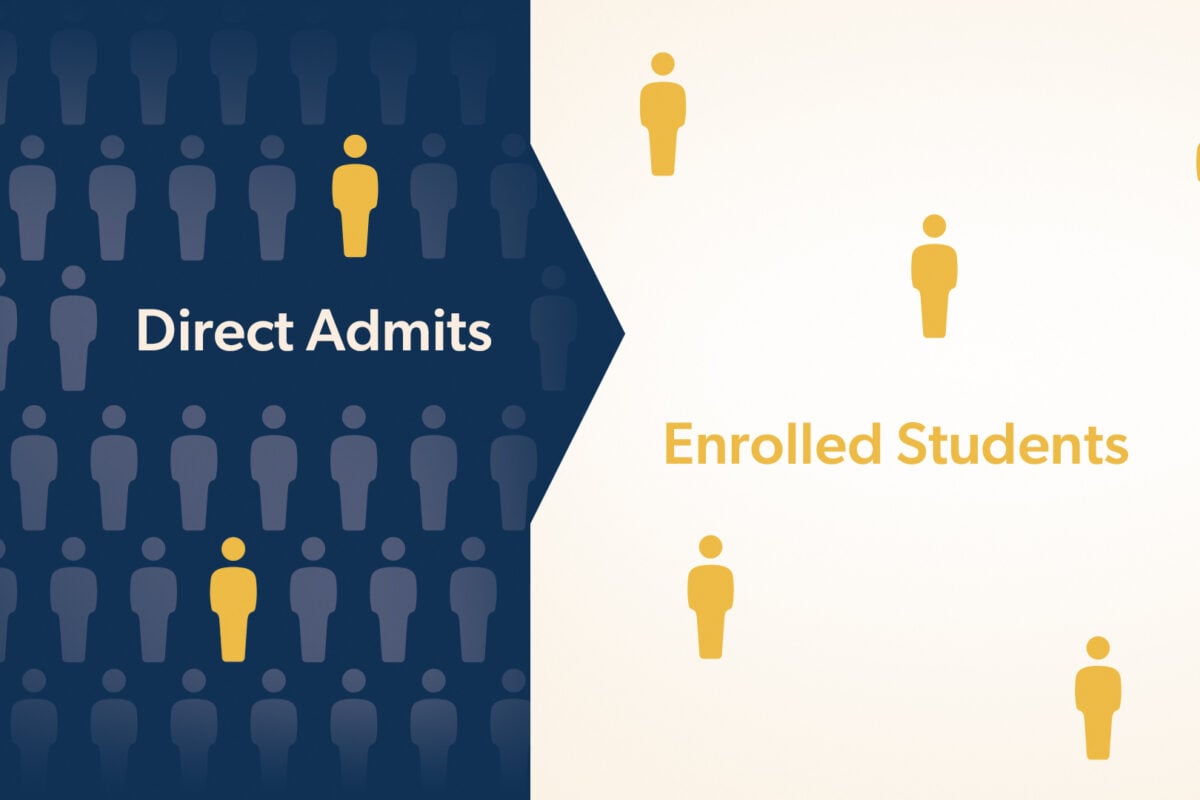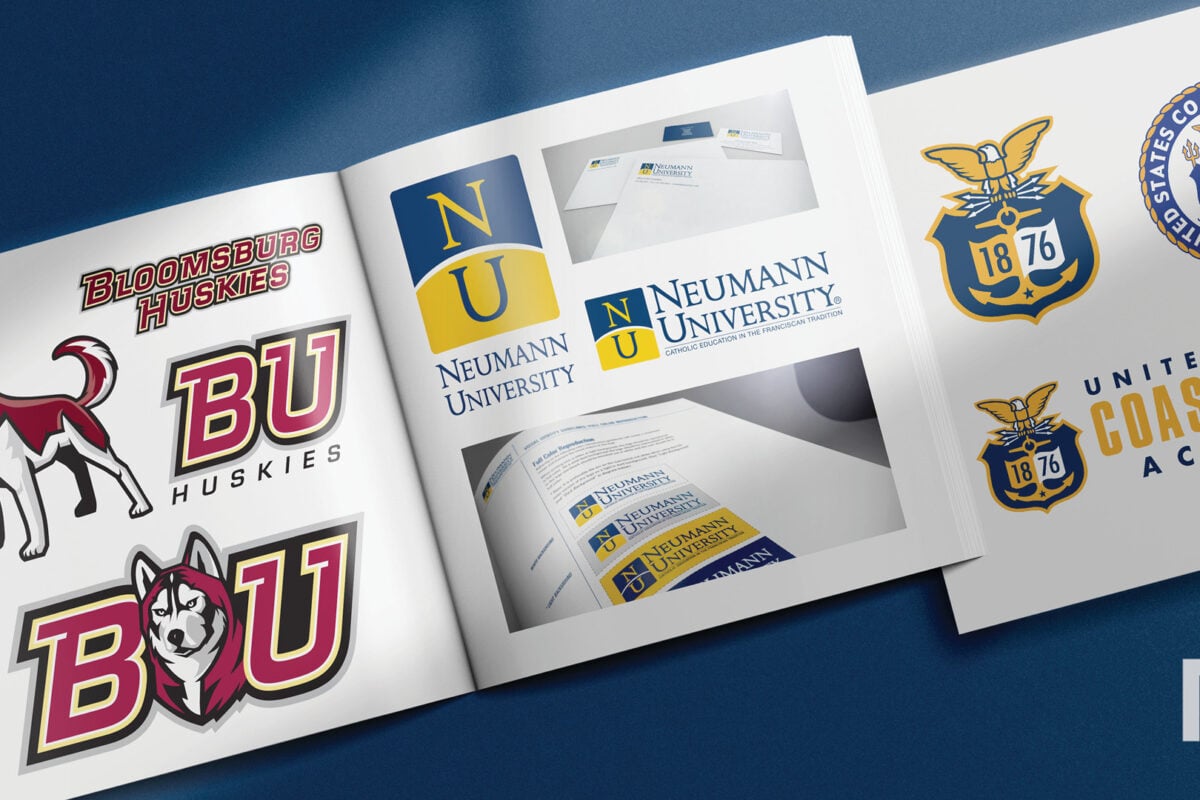Enrollment marketing has changed dramatically in the nearly four decades that Paskill President Jim Paskill has been helping colleges and universities drive enrollment.
Yet, one fundamental truth still stands. Here Jim shares that truth and other insights gained from his career in and influence on the industry.
Looking back, what are your most meaningful contributions?
I think from a personal standpoint, you look at the families that the agency has supported — helping to send kids to college. It’s just very satisfying from that standpoint. And from a professional level, I think it’s the fact that we’ve continued to provide services that matter.
When we started in ’86, there was barely an internet; there was certainly no digital marketing, no websites. There was none of that. And even at that, advertising was kind of a dirty word in higher ed.
But we’ve changed with the times, we’ve stayed ahead of the curve, and the fact that we’re still relevant after over three decades is really a testament to our people and the services we provide.
What has changed the most over your career?
The importance of enrollment marketing. Enrollment marketing is something that has really just grown within the past 20 years. Prior to that there was a “Build it, and they will come” model.
I think with the advent of digital advertising and all of the tools that are afforded to us now, there’s a heavy reliance on enrollment marketing. And that’s all forms — that’s email, that’s digital, that’s still traditional, that’s print. Institutions are much more reliant on marketing than they ever have been in the past.
And that is really just a couple of decades old, because, prior to that, colleges didn’t advertise. To suggest anything like outdoor boards or transit advertising, presidents would have a fit. They felt that traditional advertising was really beneath their industry. There was very much a prevailing feeling that “We’re not gonna do any advertising.” So that was something that we battled for a long time.
We finally convinced a school up in North Jersey to do billboard advertising and that was a big coup for us. We were one of the first in the area to do any kind of traditional advertising.
Did you see any impact?
The president got a lot of calls from his buddies, saying, “What the hell are you doing? Why are you doing billboards? What are you, a supermarket?”
But it wasn’t too long after that, that the internet started to take off and digital advertising started to really lay its foundations and there was no sense of that same stigma attached to digital advertising that was attached to traditional advertising. So colleges relatively quickly embraced what digital advertising could do for them.
Is digital the most important change in enrollment marketing?
Websites. Absolutely. The school’s website — dot edu — is by far the most important marketing tool any school has. It’s not even close. Everything else is a far, far distant second.
And then the ability for digital advertising to drive people to that website. Those two things together have changed the landscape of marketing for colleges. And strong brand messaging and creative that really gets at what’s true about your institution. That is expected now from every student at every college.
What hasn’t changed as much as people think?
The reason kids select a college. The reasons are still the same for how they select a college and, ultimately, what that tipping point is for selecting one school over another. Which underscores the importance of making that human connection.
That college visit, when you’re walking around school, you’re with your child, and you can just tell that this is a good fit for my kid and they feel the same. And they make that one-on-one connection. Typically, it’s gonna be with an admissions counselor, but it could be with a faculty member, or someone else.
You know, I always tell admission counselors that I wouldn’t buy a car from a salesperson I didn’t like. I’m certainly not going to spend, whatever, a quarter of a million dollars for my child’s education and not like the person that I’m dealing with. No parent is gonna make that decision lightly.
So there has to be that human connection, that one-on-one connection. Parents have to feel good about the institution and their child has to feel they fit there. That emotional fit is so important. And that’s never going to change for the traditional undergrad coming out of high school. It’s absolutely critical.
Are colleges and universities building these connections effectively?
No. Think about the typical college business model. You have one of the most important financial and emotional decisions a family is ever going to make. Yet the people that colleges have in those roles are 22, 23 years old, right out of college, with no training whatsoever. And in any college, that staff is responsible for 85%, 90% of the enrollment in that school.
A college is a $35-$40 million business — a small college. What other $40 million business is going to entrust 85%, 90% of their sales to 22-year-olds with no training?
So it’s not a good business model and that’s why our student recruitment workshops teach counselors how to make real connections. How to see their roles in the business as critical to the school’s success.
What do you think will impact higher education marketing most in the coming years?
AI is having a huge impact. Just the ability to target even more in terms of prospective students; the ability for AI to develop content for communication and nurture flows.
I think it’s somewhat counterintuitive in that it’s going to be taking some of that human touch and human relationship out of the equation, which is still going to be essential.
So I think the role of that admissions counselor is going to be impacted greatly by AI. No question about it. And schools are already utilizing AI to write email communication. They’re using AI to develop content for their organic social and things like that.
Are we going to lose that human touch that’s so important? I think we have to be careful that we don’t.



